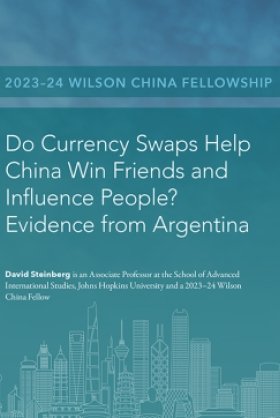Do Currency Swaps Help China Win Friends and Influence People? Evidence from Argentina


The People’s Bank of China has signed bilateral swap agreements with dozens of foreign central banks since 2008, turning China into a major international lender of last resort. China’s swap lines have both economic and geopolitical objectives, which include increasing political support for China on the international stage. This paper examines whether China’s bilateral swaps shift foreign public opinion towards China. The empirical analysis focuses on Argentina, which has actively used its swap line to help address the country’s severe economic difficulties. To examine the effect of the currency swap, I designed a survey experiment that primes some respondents about the swap. The experiment was embedded within a nationally representative survey conducted during the 2023 election period. I find that priming Argentine citizens about Chinese financial assistance does not increase the average citizen’s desire to strengthen ties with China. Instead, we find that Chinese financial assistance has a polarizing effect on public opinion: it increases support for China among those who favor the incumbent party, but reduces support for China among opposition voters. In sum, Chinese financial assistance does not uniformly improve the country’s image, and actually worsens the country’s standing among some segments of the population. This suggests there are limits, when it comes to public opinion, for China’s “bailout” diplomacy.
Author

Associate Professor of international political economy at Johns Hopkins University School of Advanced International Studies

Kissinger Institute on China and the United States
The Kissinger Institute works to ensure that China policy serves American long-term interests and is founded in understanding of historical and cultural factors in bilateral relations and in accurate assessment of the aspirations of China’s government and people. Read more

Explore More
Browse Insights & Analysis
Greenland’s New Governing Coalition Signals Consensus

The Future of France's Far-Right Party

Ukrainian Issue in Polish Elections


